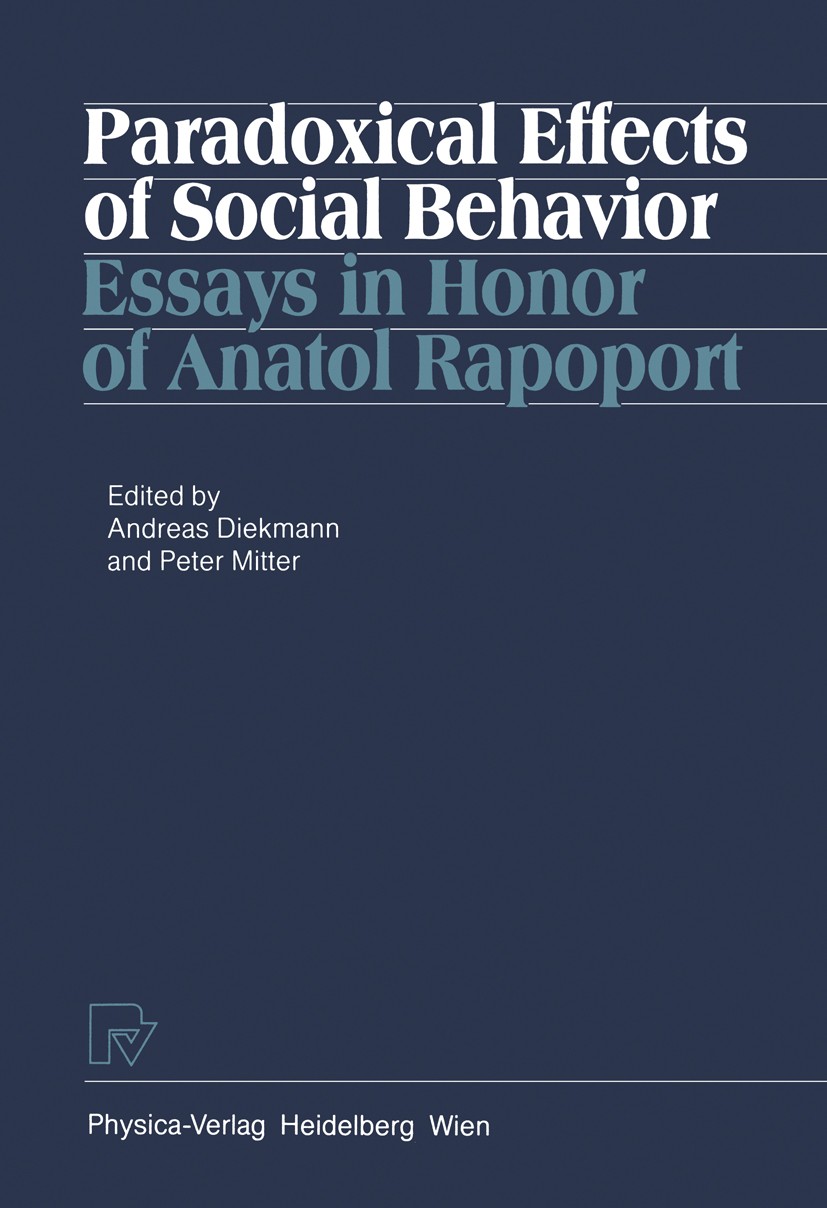| 書目名稱 | Paradoxical Effects of Social Behavior |
| 副標題 | Essays in Honor of A |
| 編輯 | Andreas Diekmann,Peter Mitter (Leiter) |
| 視頻video | http://file.papertrans.cn/741/740887/740887.mp4 |
| 圖書封面 |  |
| 描述 | In the history of science "paradoxes" are not only amusing puzzles and chal- lenges to the human mind but also driving forces of scientific development. The notion of "paradox" is intimately related to the notion of "contradiction". Logi- cal paradoxes allow for the derivation of contradictory propositions (e.g. "Rus- sell‘s set of all sets not being members of themselves" or the ancient problem with propositions like "I am lying" 1), normative paradoxes deal with contradic- tions among equally well accepted normative postulates (Arrow‘s "impossibility theorem", Sen‘s "Impossibility of a Paretian Liberal") and "factual" paradoxes refer to conflicts between conventional opinion based on an accepted empirical theory and contradictory empirical evidence (e.g. the "St. Petersburg paradox" or the "Allais paradox" in decision theory2). Paradoxes, either logical, normative or factual, also contradict our intui- tions. The counter-intuitive property which seems to be a common feature of all paradoxes plays an important part in the empirical social sciences, particularly in the old research tradition of scrutinizing the unintended consequences of pur- posive actions. Expectations based on n |
| 出版日期 | Book 1986 |
| 關鍵詞 | Computer; Evolution; Moral; Nation; decision theory; economics; history of science; management; rational cho |
| 版次 | 1 |
| doi | https://doi.org/10.1007/978-3-642-95874-8 |
| isbn_softcover | 978-3-7908-0350-1 |
| isbn_ebook | 978-3-642-95874-8 |
| copyright | Physica-Verlag Heidelberg 1986 |
 |Archiver|手機版|小黑屋|
派博傳思國際
( 京公網(wǎng)安備110108008328)
GMT+8, 2025-10-12 20:53
|Archiver|手機版|小黑屋|
派博傳思國際
( 京公網(wǎng)安備110108008328)
GMT+8, 2025-10-12 20:53


